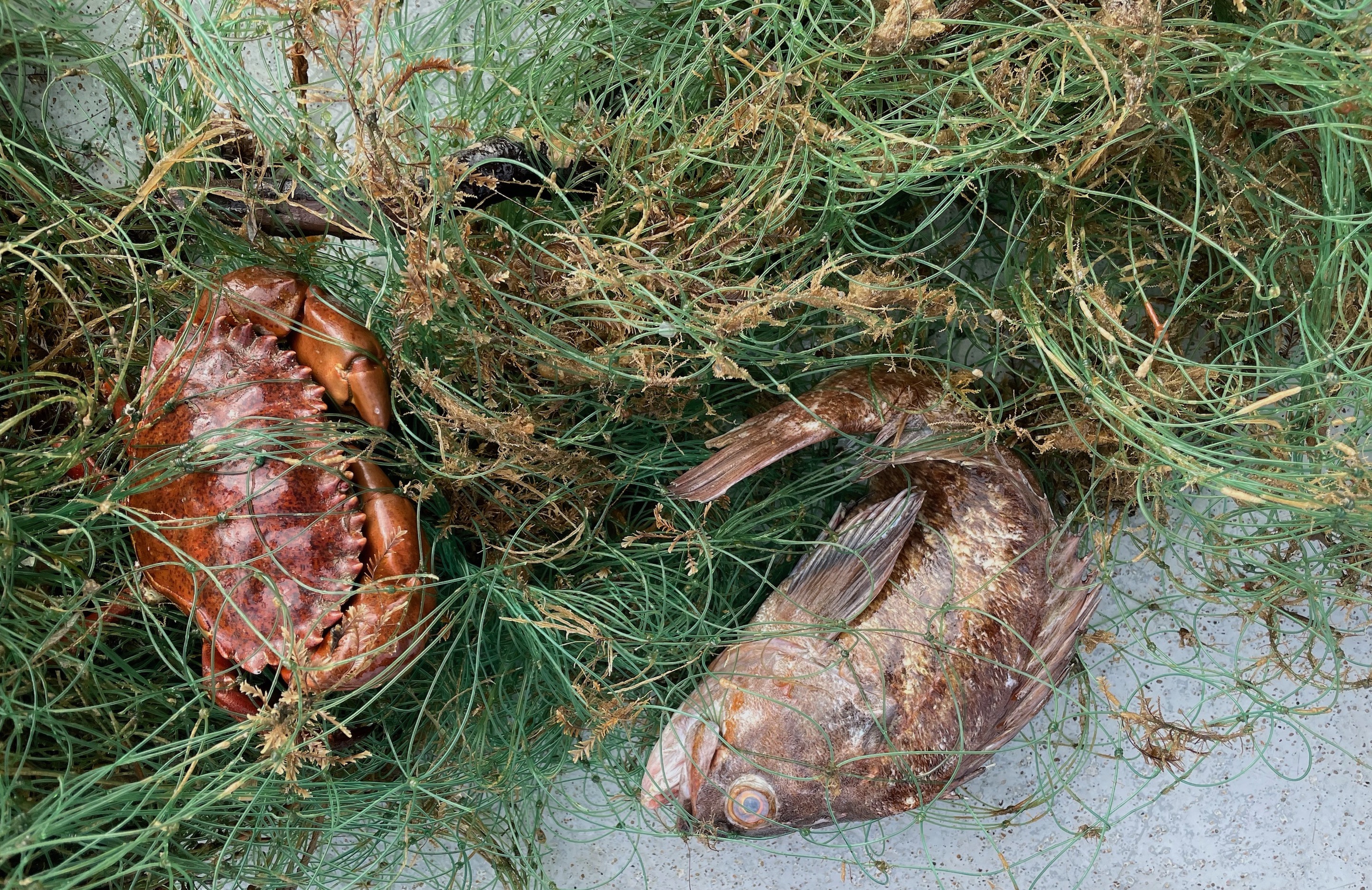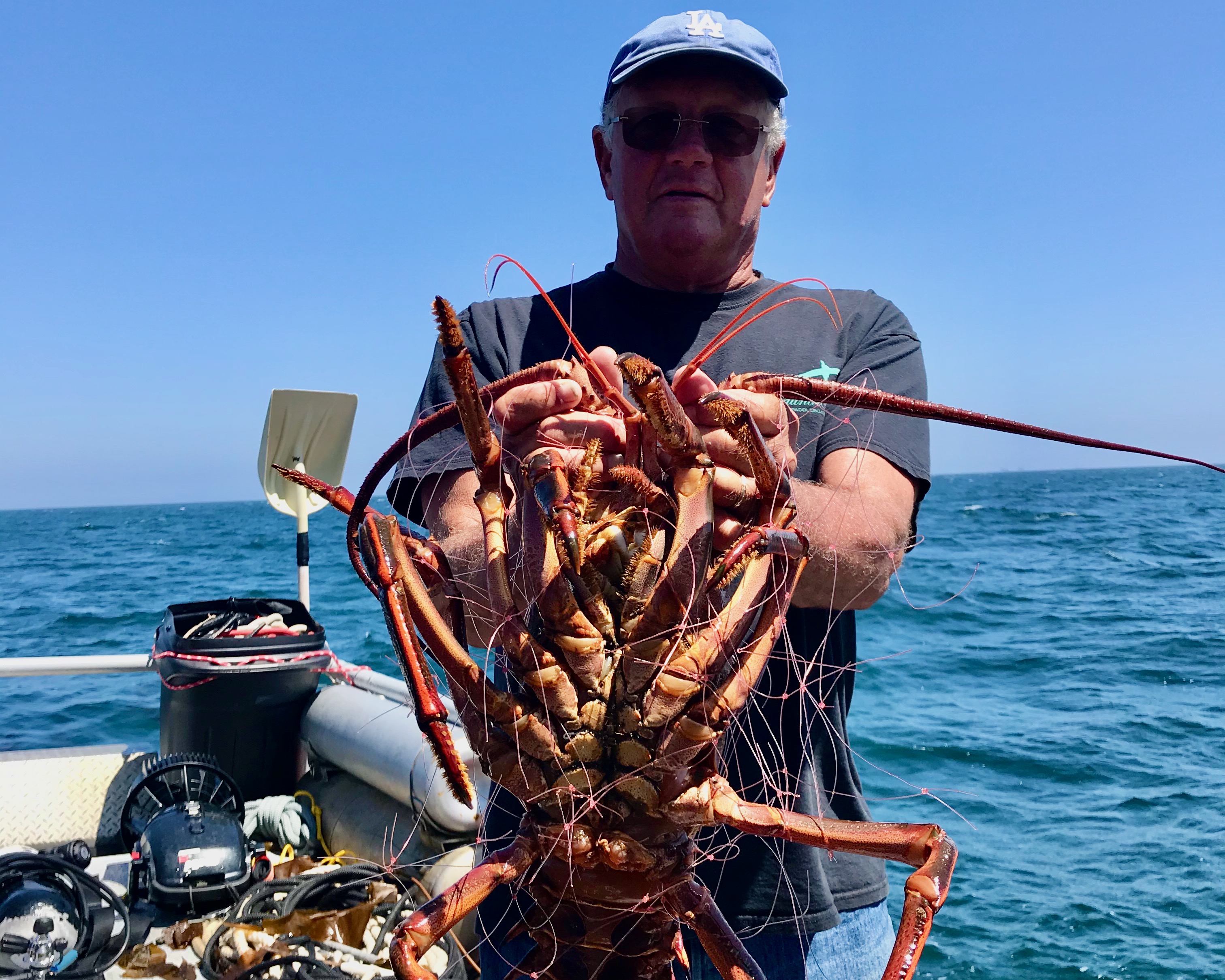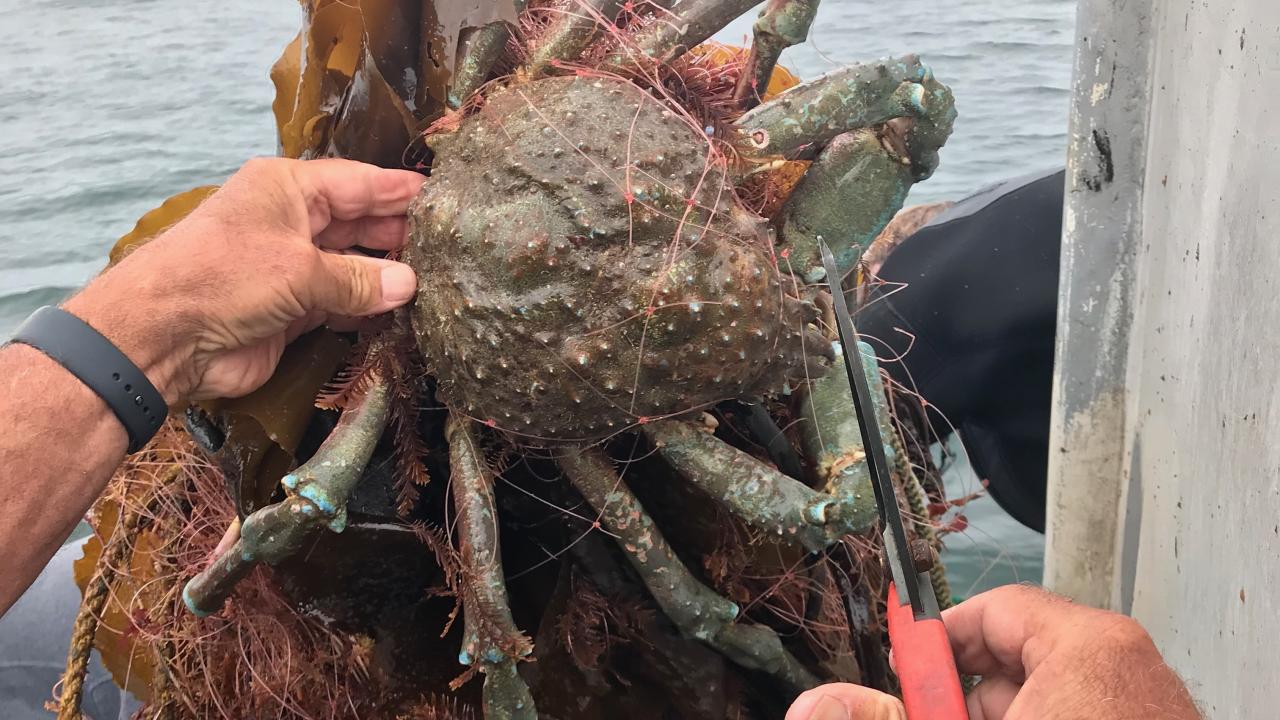The California Lost Fishing Gear Recovery Project recovered more than 45 tons — 90,968 pounds — of lost, abandoned or otherwise discarded fishing gear along the Santa Barbara, Ventura, Los Angeles, Orange and San Diego coasts and from around the Channel Islands in 2020 and 2021. The project is a program of the Karen C. Drayer Wildlife Health Center at the UC Davis School of Veterinary Medicine.
“Lost, abandoned or otherwise discarded fishing gear impacts the global ocean, harming marine wildlife, degrading habitat, and endangering vessels and ocean-users,” said Kirsten Gilardi, director of the WHC and its California Lost Fishing Gear Recovery Project, which works directly with commercial fishers to find and retrieve the gear to reduce its impact. “We’re celebrating World Oceans Day, which is June 8, not only by assessing the achievements of our project to date, but also by continuing this important work to remove the most impactful form of marine debris from southern California’s coastal ocean.”

Fishing for lost gear
Launched in 2006, the project has removed thousands of nets, pots and traps and has released hundreds of live sharks, fish and invertebrates (e.g. lobsters, crabs) back to the ocean. The project has also documented many hundreds of marine organisms that have not survived being trapped or tangled in gear.
Divers, whose “day jobs” are commercial urchin harvesting, worked in 30-100 feet of water over the course of 133 days from December 2019 through December 2021. They found and retrieved 666 items of fishing gear from a variety of marine habitats. Almost 1,400 live animals and more than 7,900 carcasses were documented in recovered gear and returned to the ocean.
“In over 50 years of diving, most of that as a fisherman, I have been really bothered by all of the lost fishing gear I have come across when underwater,” said Glenn Dexter, a contract vessel operator and diver for the project. “It has been really rewarding to work with UC Davis from the F/V Triton, and with contract divers Tony Schroeder and Mike Neil, to find and remove the gear. We have left the ocean cleaner and safer for marine life and for the health of the ocean.”

Commonly caught
The most commonly observed animals in recovered gear were lobster, spider crab, other crab species and sea urchins. Several dead cormorants, as well as sharks and rays, were also observed in recovered gear.
“This is what World Oceans Day is all about — doing what we can locally to protect our ocean globally,” said Jack Ainsworth, executive director of the California Coastal Commission, which has directed $2.3 million in mitigation fees to support the program over the years. “The ocean needs our help as much as we need it. California’s $45 billion coastal economy depends on a healthy, vibrant ocean.”
The California Lost Fishing Gear Recovery Project just received new funding from the California Coastal Commission to conduct more work off the southern California coast in 2022.
“We are really looking forward to getting back out there, on and in the water, to continue cleaning up our ocean and saving marine wildlife,” Gilardi said.
Media Resources
Media Contact:
- Kat Kerlin, UC Davis News and Media Relations, 530-750-9195, kekerlin@ucdavis.edu
- Amy Bond, UC Davis One Health Institute communications, ajbond@ucdavis.edu
